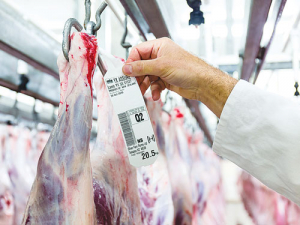M.I.A.
OPINION: The previous government spent too much during the Covid-19 pandemic, despite warnings from officials, according to a briefing released by the Treasury.
 New meat processing protocols have reduced the industry’s peak processing capacity by approximately 50% for sheep and 30% for cattle.
New meat processing protocols have reduced the industry’s peak processing capacity by approximately 50% for sheep and 30% for cattle.
COVID-19 will continue to impact heavily on the ability of farmers to get stock killed during April and May.
The impact is due to physical distancing requirements between meat plant employees to prevent the spread of the virus
Beef + Lamb New Zealand’s Economic Service, in conjunction with the Meat Industry Association and the processors, have just released its assessment on processing capacity across the country and the potential impact on waiting times for farmers.
The findings show the new meat processing protocols have reduced the industry’s peak processing capacity by approximately 50% for sheep and 30% for cattle.
Due to uncertainty about how long Alert Level 4 may last, and whether the physical distancing rule will remain under Alert Level 3, the modelling is based on these protocols remaining in place for eight weeks from the start of April.
Both BLNZ and MIA say they are acutely aware there are already significant waits for some farmers – especially on drought-hit regions of the country.
They’re forecasting extra delays to lamb processing in the South Island in April and May – with processing being pushed back at least a further week. In the North Island, no further delays are expected on top of what farmers are currently experiencing. There’s unlikely to be any impact on adult sheep or bobby calf processing.
Cattle farmers are being urged to talk to their processors – as each will have individual plans around prime versus manufacturing.
BLNZ are forecasting that bull processing is likely to be unaffected because the peak of processing occurred in January. However, it says farmers can expect a week’s delay – on top of any current backlog of prime steer and heifer – in both islands in May. It expects this extra one-week backlog to carry on through to June in the North Island.
MIA says it’s conscious of the problem and is working hard to see how production can be lifted under the COVID-19 protocol.
B+LNZ, says together with the MIA and processing companies, it will be updating processing data and reforecasting on a weekly basis and feeding this back to the industry. It will continue to give an overall picture on likely processing performance nationally, by island and stock class, and identify ongoing implications.
OPINION: "We are back to where we were a year ago," according to a leading banking analyst in the UK, referring to US president Donald Trump's latest imposition of a global 10% tariff on all exports into the US.
DairyNZ says the Government’s proposed Resource Management Act reform needs further work to ensure it delivers on its intent.
Overseas Trade Minister Todd McClay says he's working constructively with the Labour Party in the hope they will endorse the free trade agreement (FTA) with India when the agreement comes before Parliament for ratification.
Donald Trump's latest tariff tantrum has again thrown the world of trade into a new round of turmoil and uncertainty, and NZ is caught up in it.
The third edition of the NZ Dairy Expo, held in mid-February in Matamata, has shown that the KISS principle (keep it simple stupid) was getting a positive response from exhibitors and visitors alike.
Twenty years ago, South African dairy farm manager Louis Vandenberg was sent to a farm in Waikato to provide training on Afimilk technology.

OPINION: A mate of yours truly reckons rural Manawatu families are the latest to suffer under what he calls the…
OPINION: If old Winston Peters thinks building trade relations with new nations, such as India, isn't a necessary investment in…